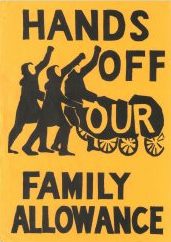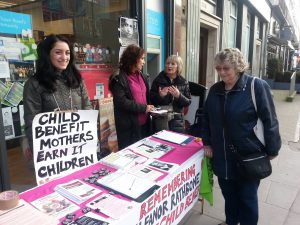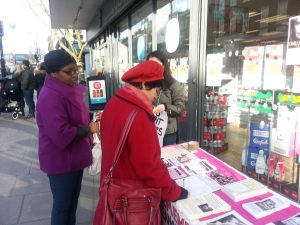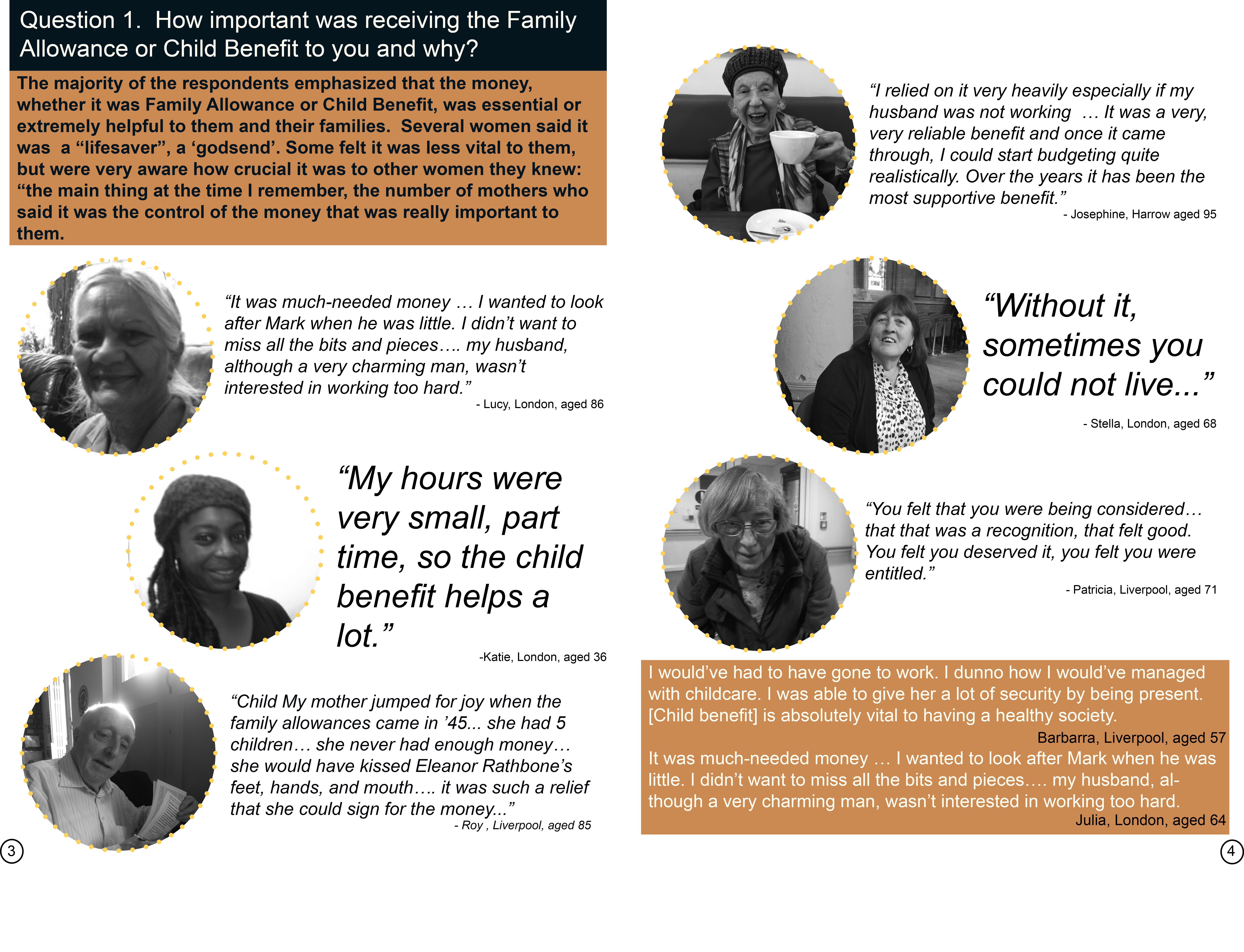
On the 70th anniversary of the first payment of Family Allowance, now Child Benefit, share your memories of what this money meant to you by being interviewed for our Oral History Project. During 2016 and 2017 we celebrated the 70th anniversary of the first payment of Family Allowance, now known as Child Benefit, and commemorate Independent feminist MP Eleanor Rathbone (1872- 1946) who made it happen. Eleanor Rathbone campaigned for decades from 1912 for greater equality of income between women and men, and a wage to be paid directly to mothers for their work of raising children and taking care of the family. Rathbone was determined to end mothers’ and children’s poverty and dependency. She won the historic Family Allowance Act in 1945, the first measure of the post-war Welfare State. Mothers collected their first payment from the post office on 6 August 1946. Family Allowance was paid to every mother – five shillings a week for second and subsequent children.

Eleanor Rathbone was one of the most famous and respected women of her time, and generations of mothers and children have benefitted from Family Allowance or Child Benefit since 1946. Yet few today know anything about Eleanor Rathbone and how long and hard she fought to ensure that mothers’ contribution to society was financially recognised. Women have had to repeatedly defend their right to this recognition of their caring work. Some may remember that in 1972 the government tried to transfer Family Allowance to men’s pay packets. A national network coordinated by the Wages for Housework Campaign succeeded in keeping the money in mothers’ hands. Soon after it was paid from the first child as women had pressed for, and Eleanor Rathbone intended. Oral History Project Crossroads Women, the Remembering Eleanor Rathbone Group, and students and staff at Parliament Hill School have teamed up to reverse the lack of information with this Oral History Project funded by the Heritage Lottery Fund and Eleanor Rathbone Charitable Trust. We will interview some 100+ mothers – married, single, widowed by war, UK-born, immigrant, refugee, and more, who received Family Allowance especially in the 1940s, 50s, 60s and 70s.

We aim to find out what this money meant to mothers, and the impact it had on their lives and the lives of their children, families and communities. Already we know that many women called it ‘the only money I can call my own’. The interviews will be made widely available for schools, community and women’s organizations, research, TV and radio programmes, publications and the internet through a digital oral dossier, project website, exhibition and booklet. The findings will launched at a public meeting in the House of Commons before the end of 2018 followed by events at Parliament Hill School, Crossroads Women’s Centre, libraries, other community and public spaces. All those interviewed and their families will be welcome. What Eleanor Rathbone said: “Bearing and rearing children is the most essential of all the nation’s businesses. If it were not done at all, the world would become a desert in less than a century.” “Nothing can justify the subordination of one group of producers – the mothers – to the rest, and their deprivation of all share of their own in the wealth of a community which depends on them for its very existence.” The Disinherited Family (1924)
For more information or if you want to share your memories or know someone who might, please contact us. Here is a draft of the publication pages due for the exhibition we have planned for later in the year!
